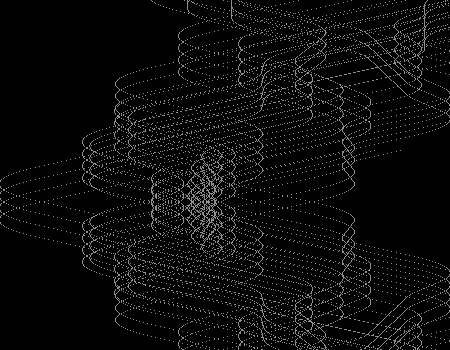Talking to Melanie L. Marshall after she read the previous post on musical time clarified some matters that were left unstated.
The issue is not so much that a musicality built up from a simple ‘beat detection’ is not possible (such notions of musicality surround us in our music schools, in our writing about music, and, unsurprisingly, in our art-science research). The issue is the implications of seeking and defining, in research, such a trait; valuing such a musicality; and, by extension, practicing such a music.
As argued by Suzanne Cusick, George E. Lewis, Christopher Small and others, musical practice constitutes a political schema—music performs society. The command-control model embedded in a musicality built upon ‘beat detection’ has profound consequences for constructing alternative politics.
As improvisers we desire to step off the simple line that posits anarchy at one end and control at the other—a line that is as familiar as the Cagian denial of agency and the heroic single author.
As creative musicians we struggle to perform freedom—not the ‘freedom’ of Ron Paul’s privileged idiots, but the freedom of Civil Rights, freedom of anti-colonialism, freedom of feminism, freedom of queer politics. The ‘free’ in (so-called) jazz.
We know rhythm is a site of interdependence, but we also know that it is shaped by the agency of all; it is compromise, yes, it is negotiation, yes, it is collective, yes, but it is also play, and it is mutation, and it also holds the potential for revolution.



2 Trackbacks
[…] [Continued in part 0.1…] This entry was posted in construction, software, theory and tagged Andrew Cyrille, autonomy, beat detection, body, Bruno Latour, Charles Hayward, cognition, command-control, cyborgs, Henkjan Honing, heterogeneity, hierarchy, HZ, input, Jim Black, machine musician, Mark Sanders, Melanie L Marshall, Michel Foucault, musicality, pedagogy, rhythm, TED, TEDxAmsterdam, time, Tony Oxley, wind-chimes. Bookmark the permalink. Post a comment or leave a trackback: Trackback URL. « Jazz Convention: l’avanguardia è tornata site redesign 02-27-12 » […]
[…] [Read the rest…] […]